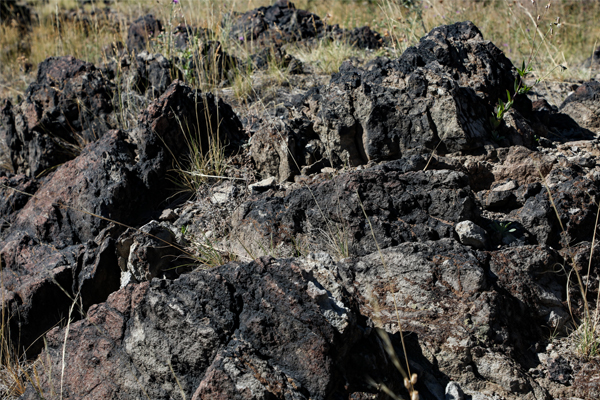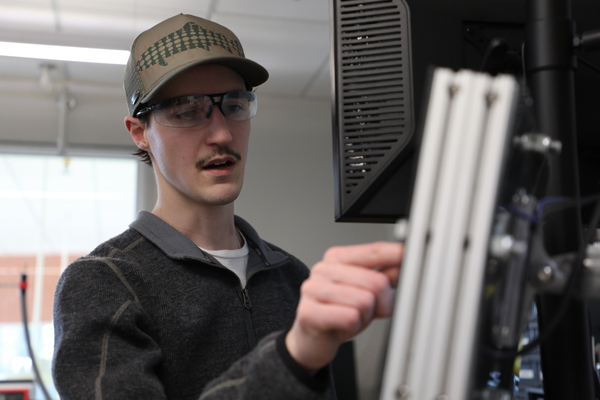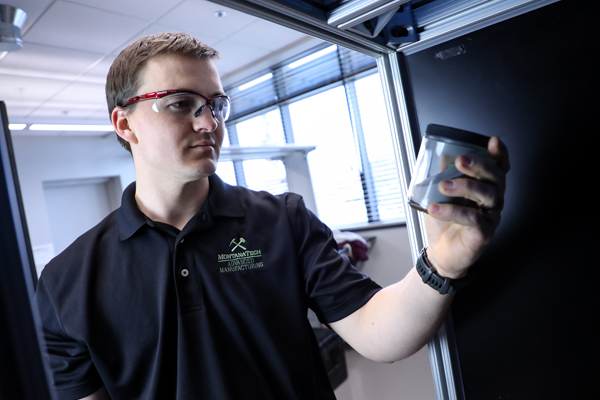
Geoscience, Hydrogeology Option, M.S.
Why Study Hydrogeology at Montana Tech?
The hydrogeology degree features a research-based curriculum, including courses in groundwater flow modeling, field hydrogeology, advanced hydrogeology and more. You’ll learn from industry-experienced — and connected — Montana Tech faculty who are passionate about helping you succeed in hydrogeology. You’ll be prepared for hydrogeology careers or to pursue your Ph.D in Earth Science and Engineering at Montana Tech.
Outstanding Faculty
The Geological Engineering Department at Montana Tech has distinguished faculty members who all hold Ph.D. degrees in subdisciplines including Civil Engineering with Geotechnical emphases, geochemistry, hydrogeology, and stratigraphy. Each faculty member has significant industrial experience they bring to the classroom, laboratory, and field site.
World-Class Hydrogeology Labs
You have plenty of hands-on learning opportunities at Montana Tech. With access to state-of-the-art and fully equipped laboratories, our hydrogeology degree students will graduate learning how to operate sophisticated laboratory and field equipment. Our geological engineering department is home to state-of-the-art facilities including a triaxial testing lab, an underground mine facility, and geotechnical and groundwater modeling software.
Hydrogeology Internships
Obtain even more hands-on experience through hydrogeology internships to supplement your bachelor’s degree from Montana Tech. Through our annual Career Services events, you’ll have access to more than 100 companies that come to campus to recruit Montana Tech students for hydrogeology summer internships for continuing students and full time employment for our hydrogeology graduates.
Exceptional Location
By choosing Montana Tech for your hydrogeology degree, you’ll benefit from our location in Butte, Montana. You can tour local engineering operations and pursue hydrogeology internships in Butte as well as in nearby cities such as Bozeman and Missoula. Plus, you’ll also have innumerable opportunities to enjoy Montana’s great outdoors in your free time.
Thesis and Non-Thesis Option
You can earn the Geoscience, M.S. option in hydrogeology with by taking 30 credits and completing a thesis or publishable paper, or by taking 36 credits, without a thesis or paper.
Study Hydrogeology and Have Fun Too
Get involved in various clubs and organizations on campus. Or enjoy the expansive nature Butte, Montana offers for year-round activities. Ski at nearby resorts or in the backcountry, enjoy local hot springs, hike the Great Divide, or fish in pristine mountain streams.
Be Ready for a Career in Hydrogeology
Through this rigorous hydrogeology degree you’ll not only gain the knowledge and skills you need to succeed. You’ll also develop communication, interpersonal, and project management skills. From Montana Tech’s engaged geological engineering faculty to Career Services, you’ll have the resources, support, and connections you need to land coveted internships and jobs and receive a top hydrogeology salary.
What is Hydrogeology?
Graduate students in Hydrogeology study the occurrence, movement, and chemistry of groundwater. Typical thesis investigations are related to environmental problems, resource supply problems, or issues associated with mining or agricultural activities, and may frequently involve research participation with the Montana Bureau of Mines and Geology.
What Types of Jobs Do Hydrogeology Graduates Get?
Hydrogeology graduates can find employment working for governmental agencies and engineering or consulting firms. They also can work in research, academia or pursue higher education at the doctoral level.
Explore Classes for the Hydrogeology Degree
The thesis option requires 30 credits, with a minimum of 15 at 500 level, and the remainder at 400 level. The non-thesis option requires 36 credits, with a minimum of 18 at 500 level, remainder at 400 level. Course schedule is determined in cooperation with faculty advisor.
Meet faculty, explore our research expertise, and more.
Get semester-by-semester info about hydrogeology courses.
The NSF, Army Research Lab, and other top institutions regularly fund our faculty and scholars.

The Doctor of Philosophy in Earth Science and Engineering, builds on engineering and science BS and MS programs and the Montana Bureau of Mines and Geology. Become an expert in your field.

This distance learning program is designed to give working professionals an opportunity to enhance their technical and managerial skills with minimum disruption to their workday.

This degree provides an avenue for professional advancement and licensure. Choose from 12 specializations, including Civil, Electrical, Environmental, Geological, Geophysical, Geotechnical, Hydrogeological, Mechanical, Metallurgical/Minerals, Materials, Mining, and Petroleum.
We can answer your questions and help you get started.
Professor and Department Head
gshaw@mtech.edu
406-496-4809